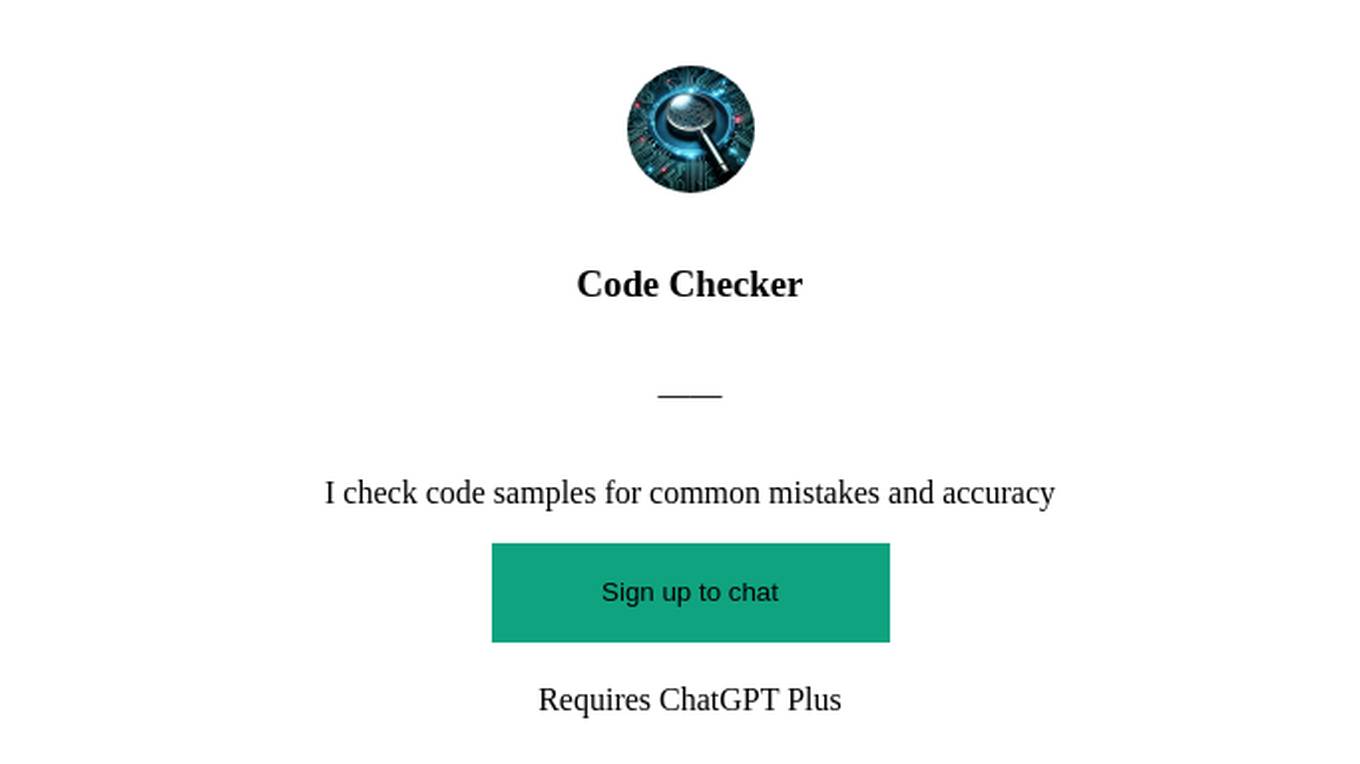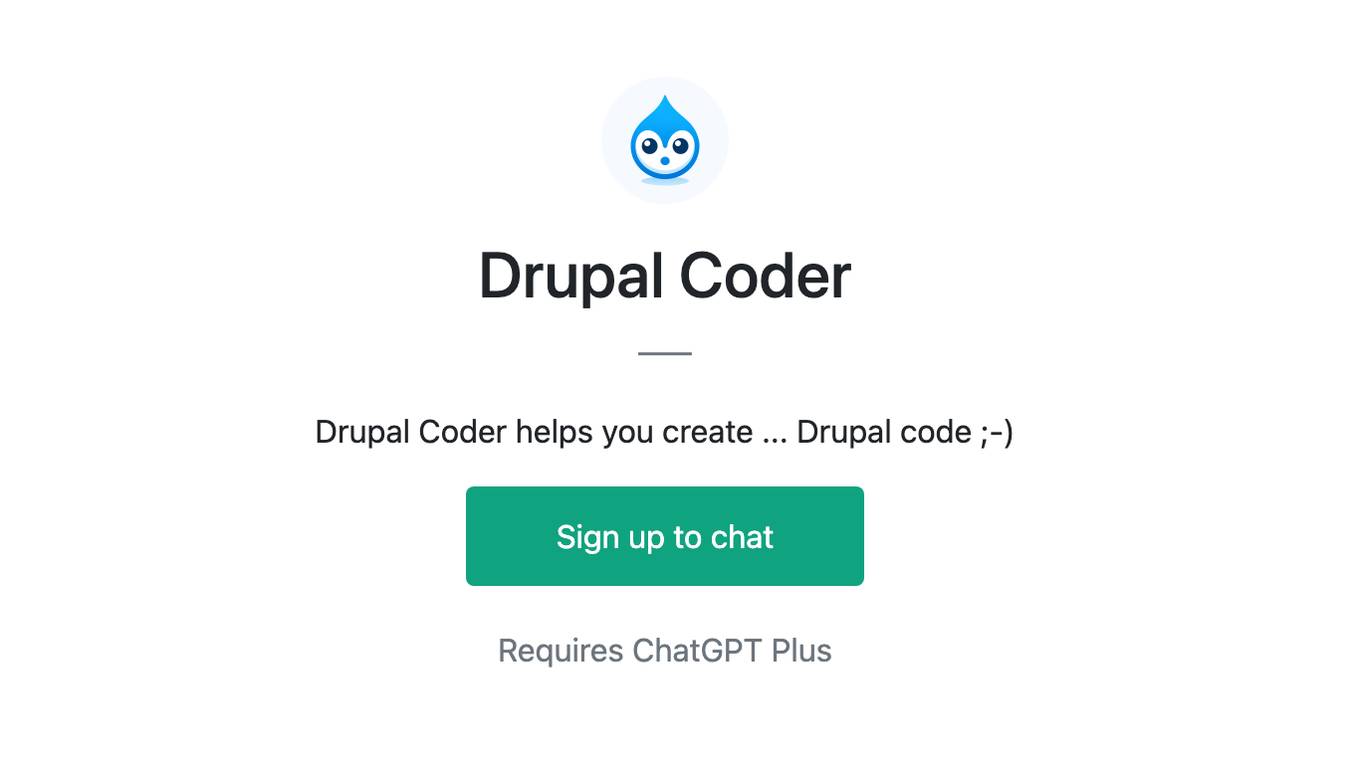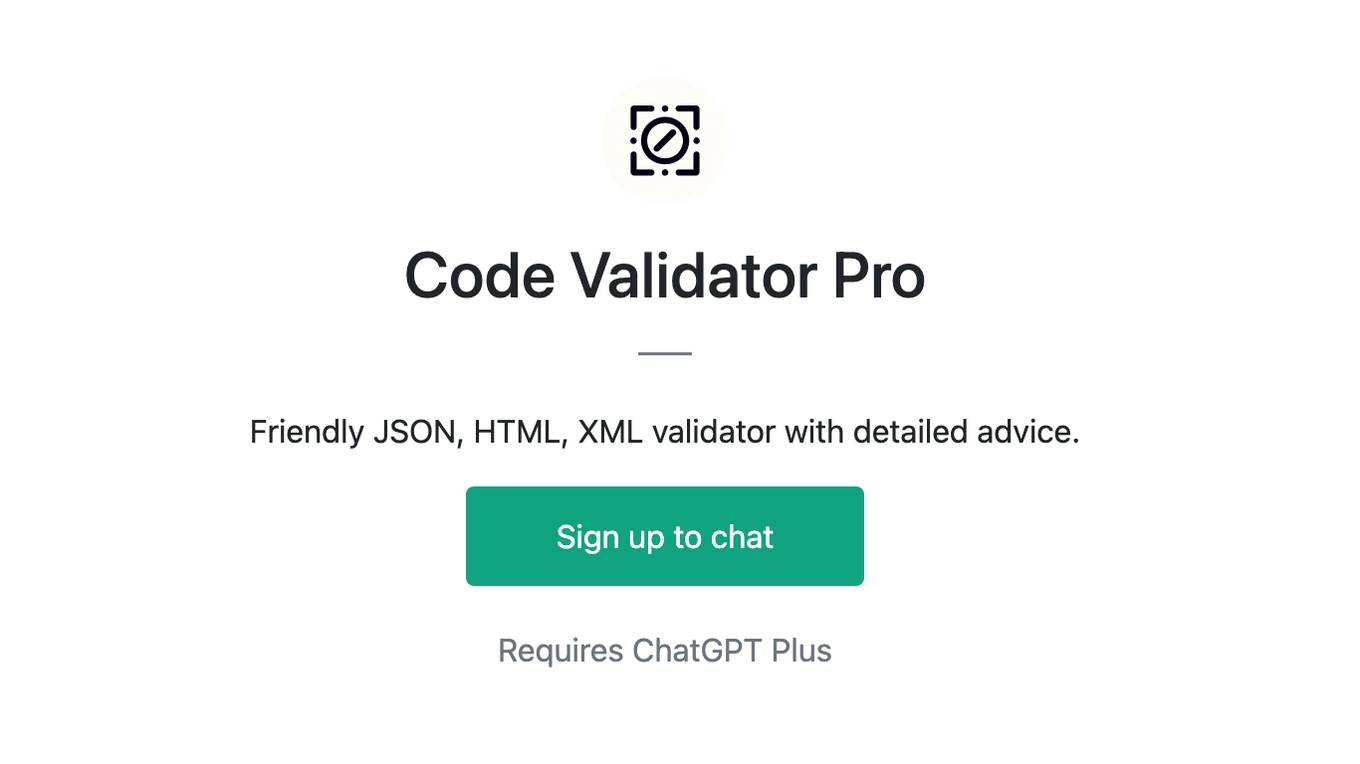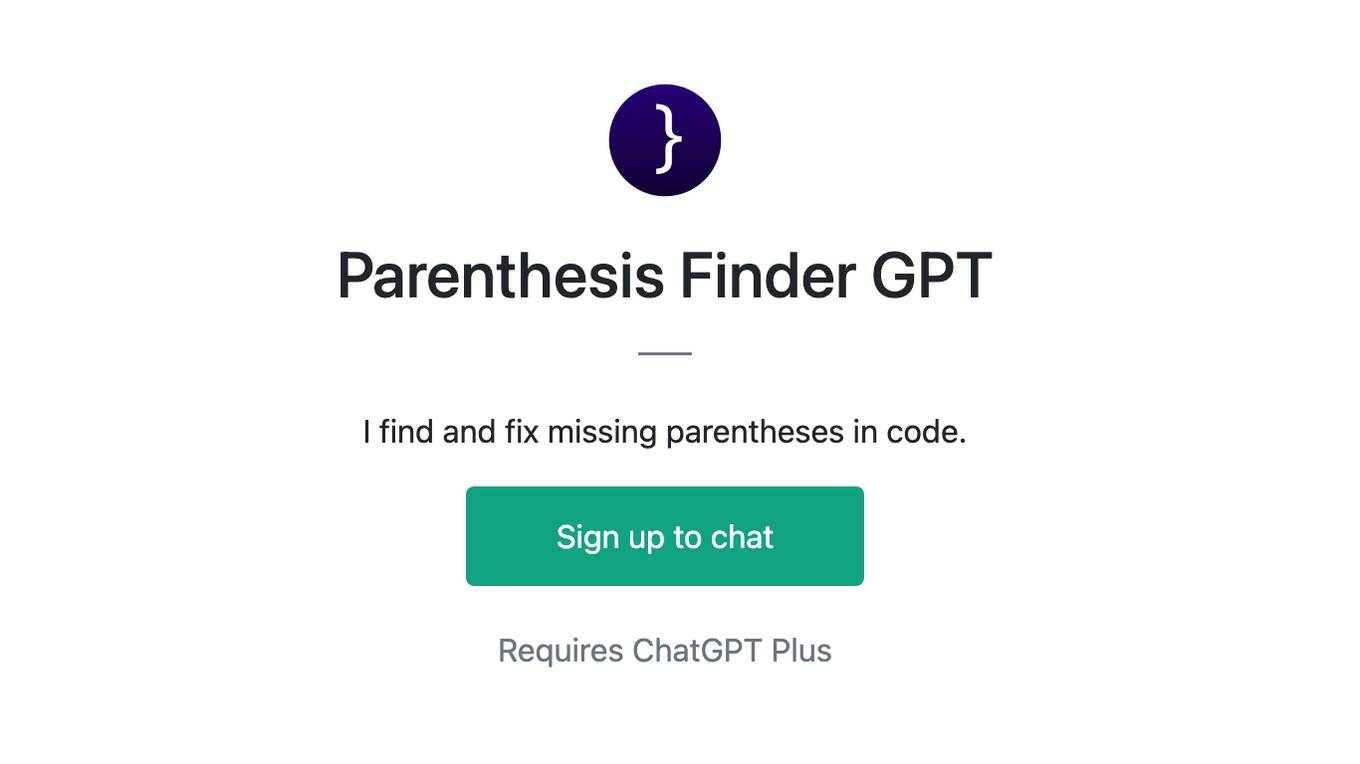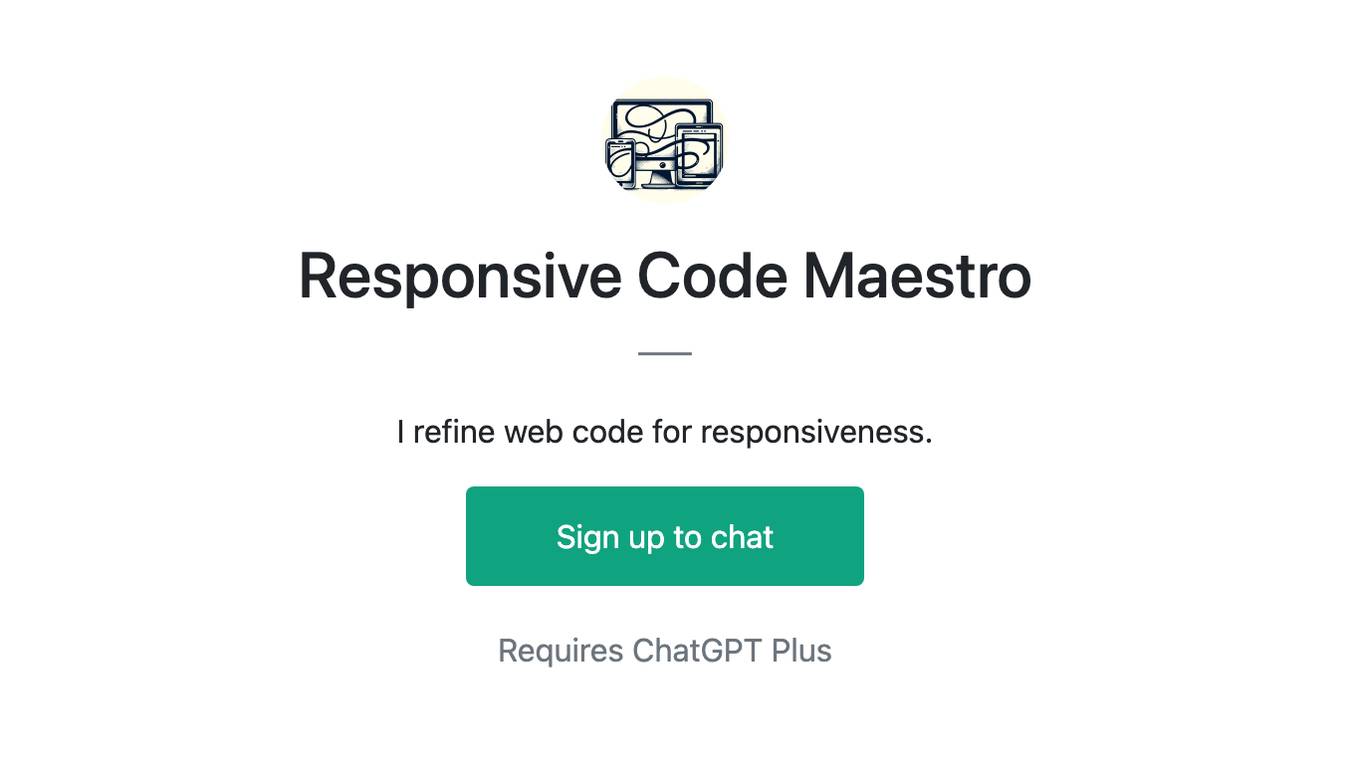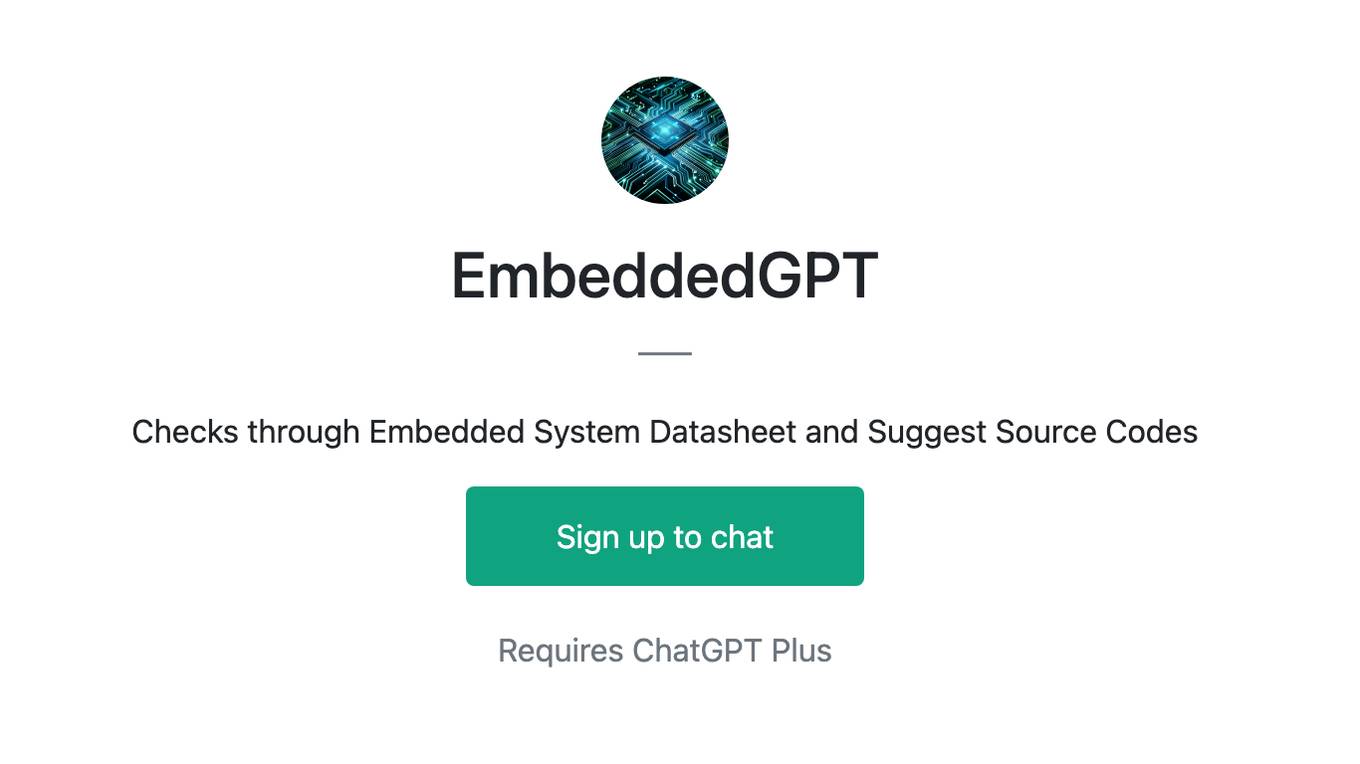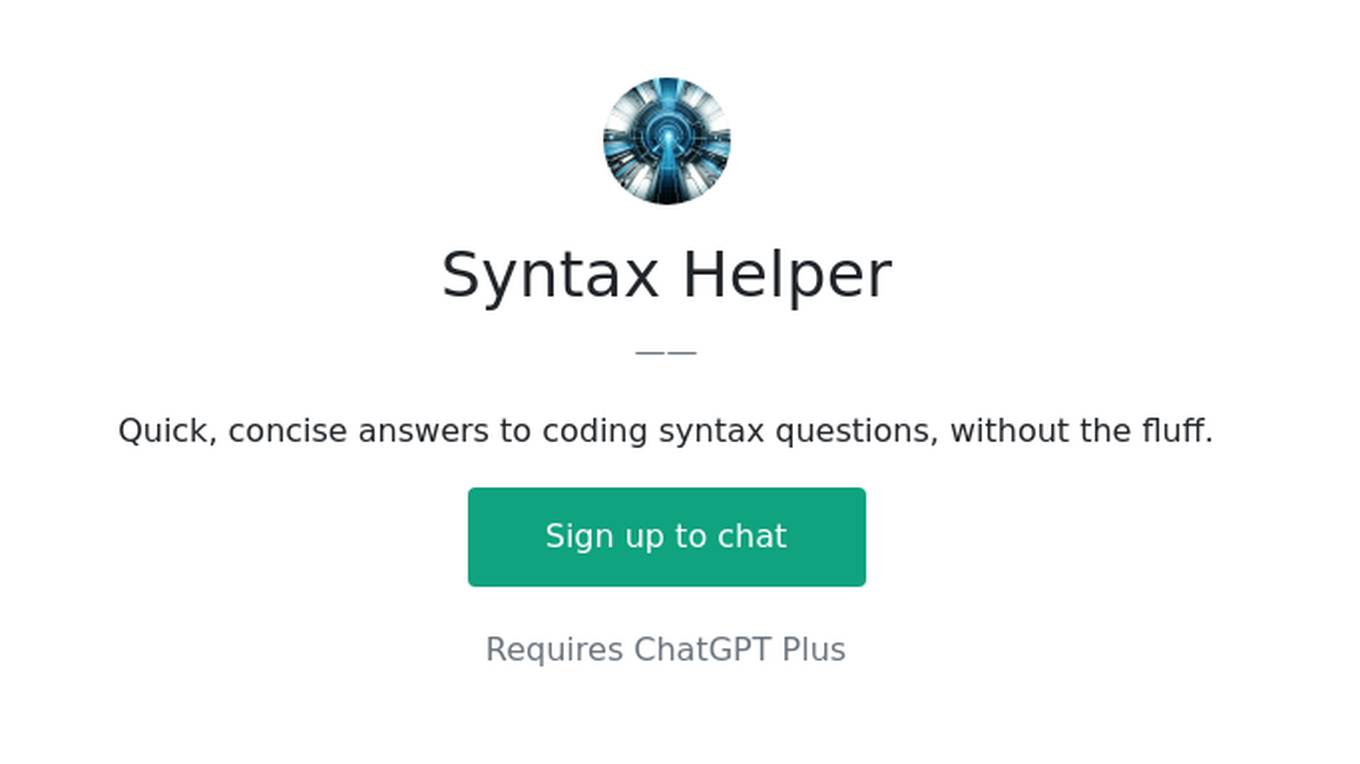Best AI tools for< Check Code >
20 - AI tool Sites
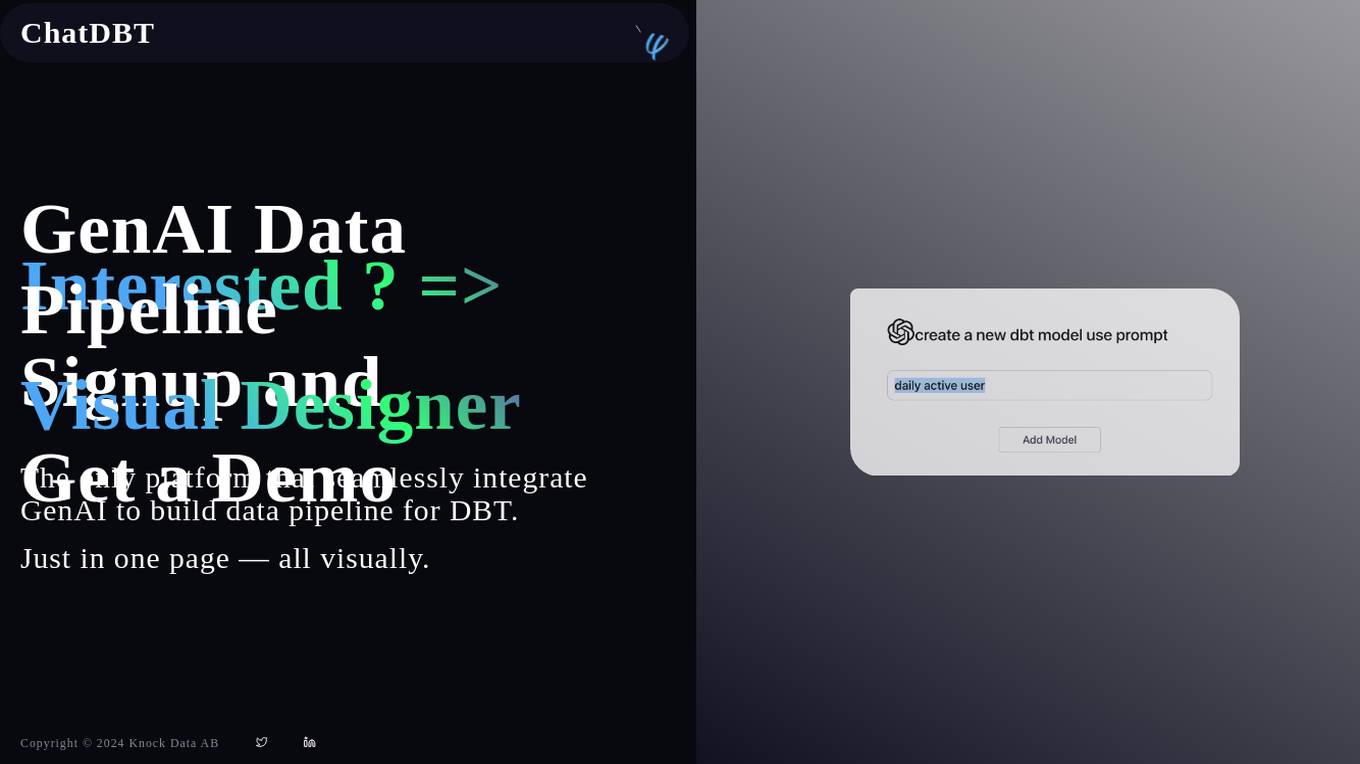
ChatDBT
ChatDBT is a DBT designer with prompting that helps you write better DBT code. It provides a user-friendly interface that makes it easy to create and edit DBT models, and it includes a number of features that can help you improve the quality of your code.
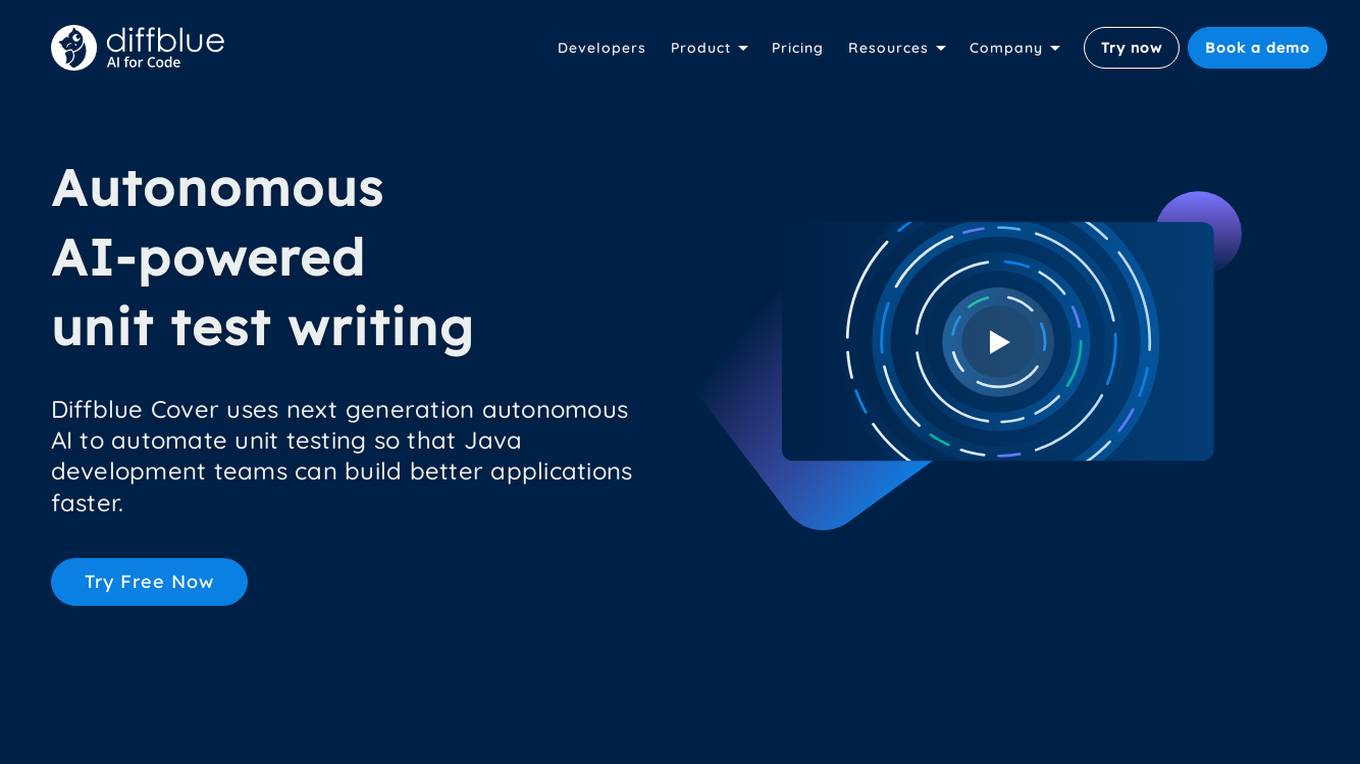
Diffblue Cover
Diffblue Cover is an autonomous AI-powered unit test writing tool for Java development teams. It uses next-generation autonomous AI to automate unit testing, freeing up developers to focus on more creative work. Diffblue Cover can write a complete and correct Java unit test every 2 seconds, and it is directly integrated into CI pipelines, unlike AI-powered code suggestions that require developers to check the code for bugs. Diffblue Cover is trusted by the world's leading organizations, including Goldman Sachs, and has been proven to improve quality, lower developer effort, help with code understanding, reduce risk, and increase deployment frequency.
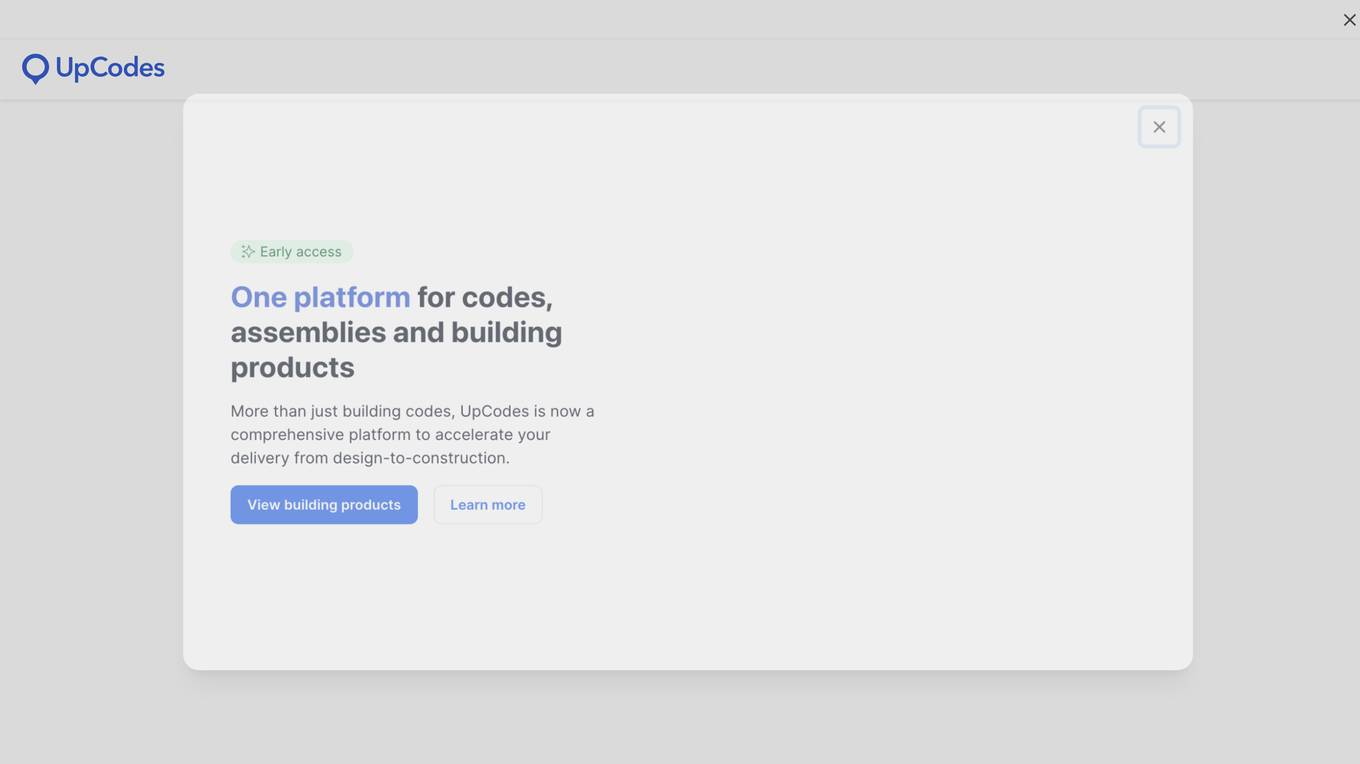
UpCodes
UpCodes is a searchable platform that provides access to building codes, assemblies, and building products libraries. It offers a comprehensive database of regulations and standards for construction projects, enabling users to easily search and reference relevant information. With UpCodes, architects, engineers, contractors, and other industry professionals can streamline their workflow, ensure compliance with codes, and enhance the quality of their designs. The platform is designed to simplify the process of accessing and interpreting building codes, saving time and reducing errors in construction projects.

Site Not Found
The website page seems to be a placeholder or error page with the message 'Site Not Found'. It indicates that the user may not have deployed an app yet or may have an empty directory. The page suggests referring to hosting documentation to deploy the first app. The site appears to be under construction or experiencing technical issues.

VibeSafe
VibeSafe is an AI-powered security scanner designed specifically for vibe-coded apps. It conducts over 55 security checks in just 60 seconds to identify vulnerabilities in AI-generated code patterns. The tool provides a detailed report card with prioritized findings and step-by-step fix instructions. VibeSafe aims to address common security issues such as exposed secrets, authentication gaps, security headers, rate limiting, CORS, database exposure, and payment security. It offers Pro features for advanced users, including AI-generated fix codes, unlimited scans, and GitHub repo scanning.
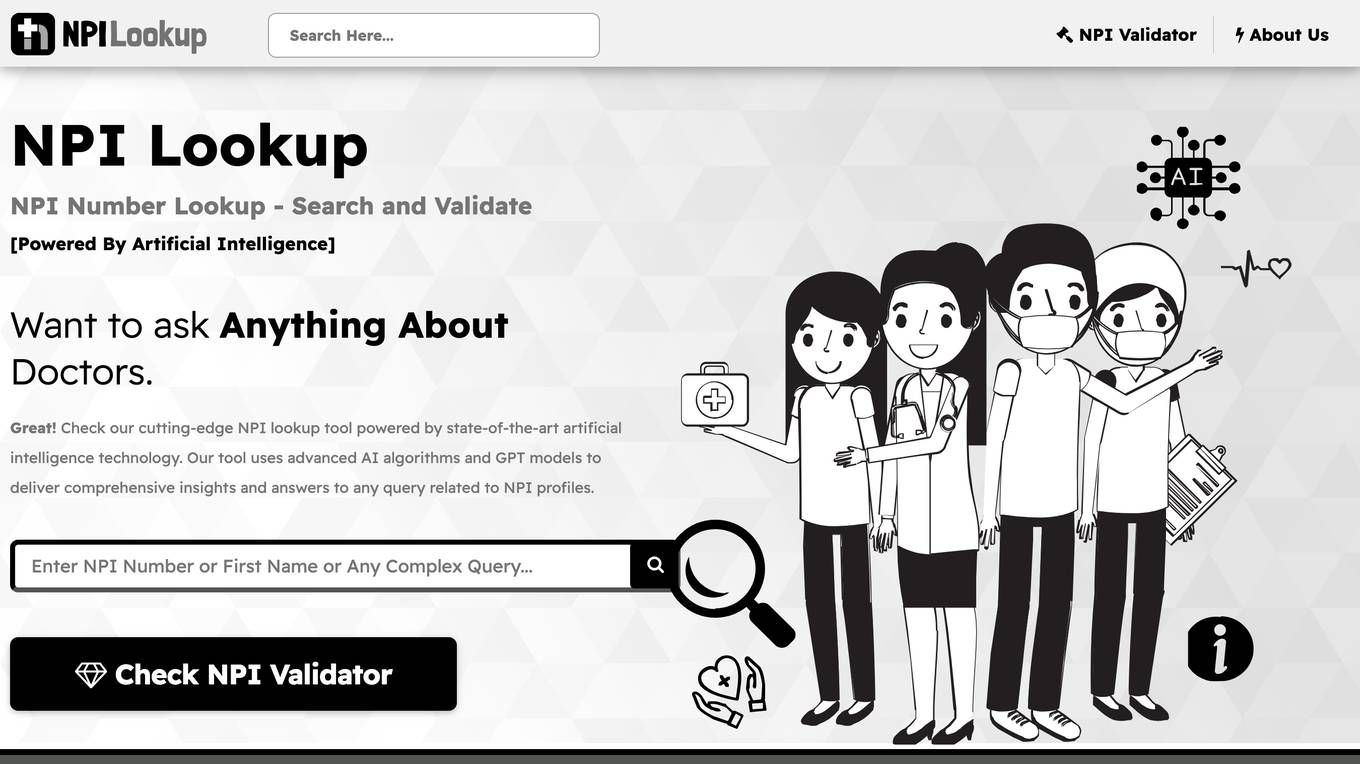
NPI Lookup
NPI Lookup is an AI-powered platform that offers advanced search and validation services for National Provider Identifier (NPI) numbers of healthcare providers in the United States. The tool uses cutting-edge artificial intelligence technology, including Natural Language Processing (NLP) algorithms and GPT models, to provide comprehensive insights and answers related to NPI profiles. It allows users to search and validate NPI records of doctors, hospitals, and other healthcare providers using everyday language queries, ensuring accurate and up-to-date information from the NPPES NPI database.
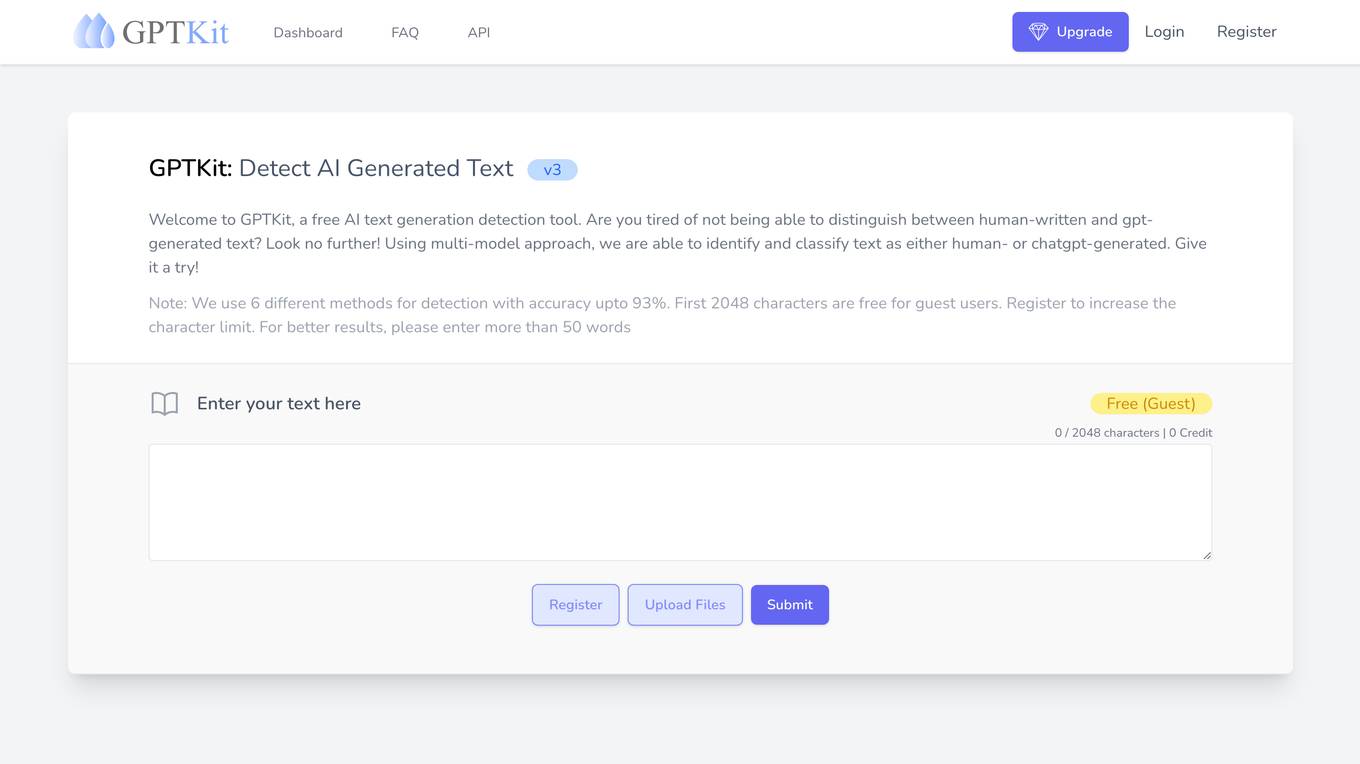
GPTKit
GPTKit is a free AI text generation detection tool that utilizes six different AI-based content detection techniques to identify and classify text as either human- or AI-generated. It provides reports on the authenticity and reality of the analyzed content, with an accuracy of approximately 93%. The first 2048 characters in every request are free, and users can register for free to get 2048 characters/request.
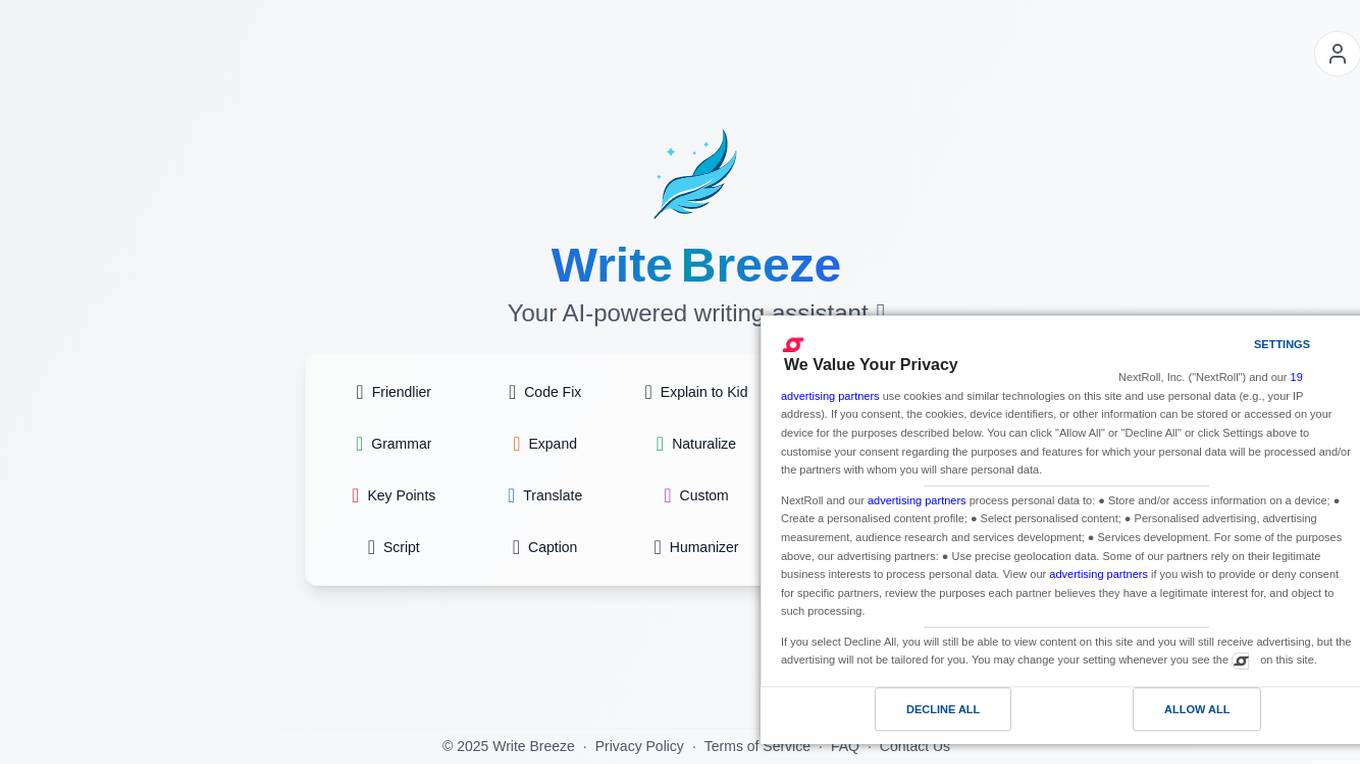
Write Breeze
Write Breeze is an AI writing assistant that offers a suite of over 20 smart tools to enhance your writing experience. From grammar and style suggestions to content optimization, Write Breeze helps users create polished and engaging content effortlessly. Whether you're a student, professional writer, or content creator, Write Breeze is designed to streamline your writing process and elevate the quality of your work.
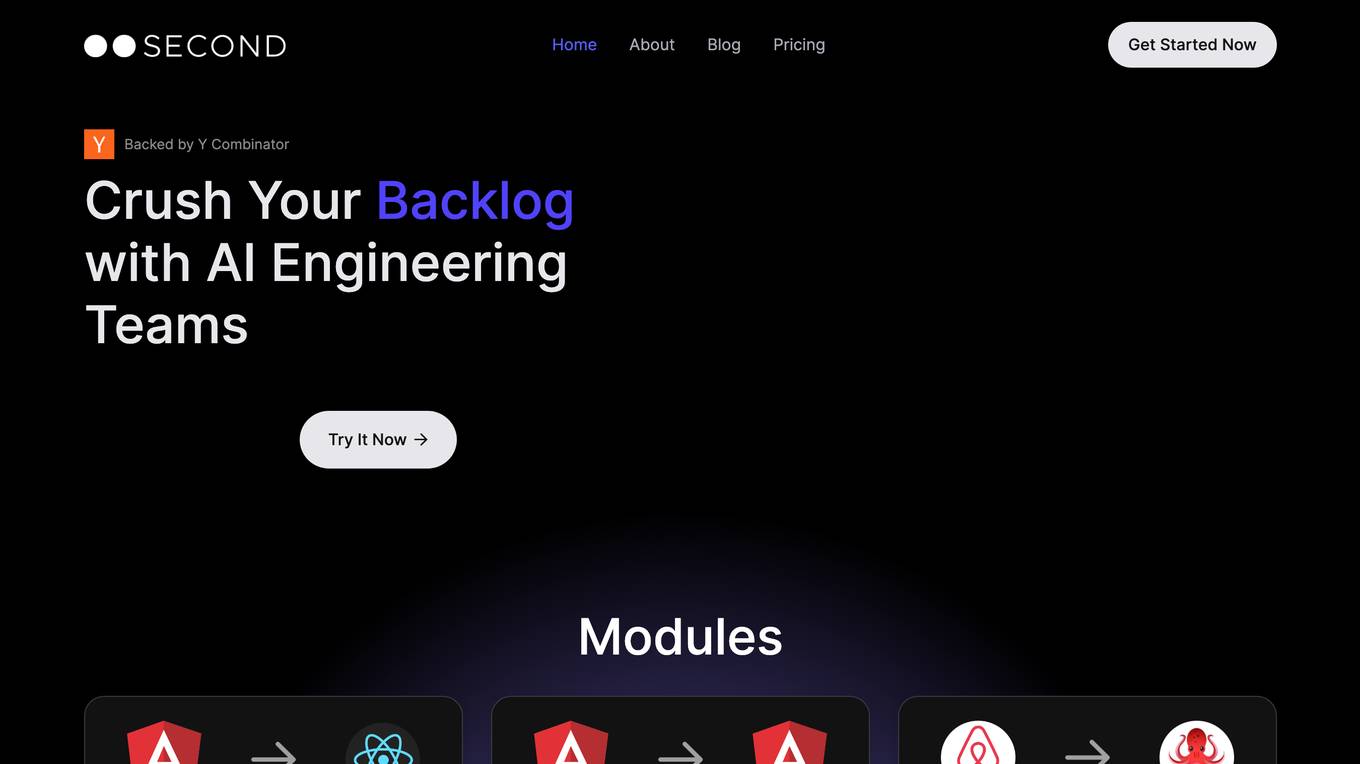
second.dev
second.dev is a domain that is currently parked for free, courtesy of GoDaddy.com. The website does not offer any specific services or products but rather serves as a placeholder for potential future use. It is important to note that any references to companies, products, or services on the site are not controlled by GoDaddy.com LLC and do not imply any association or endorsement by GoDaddy.
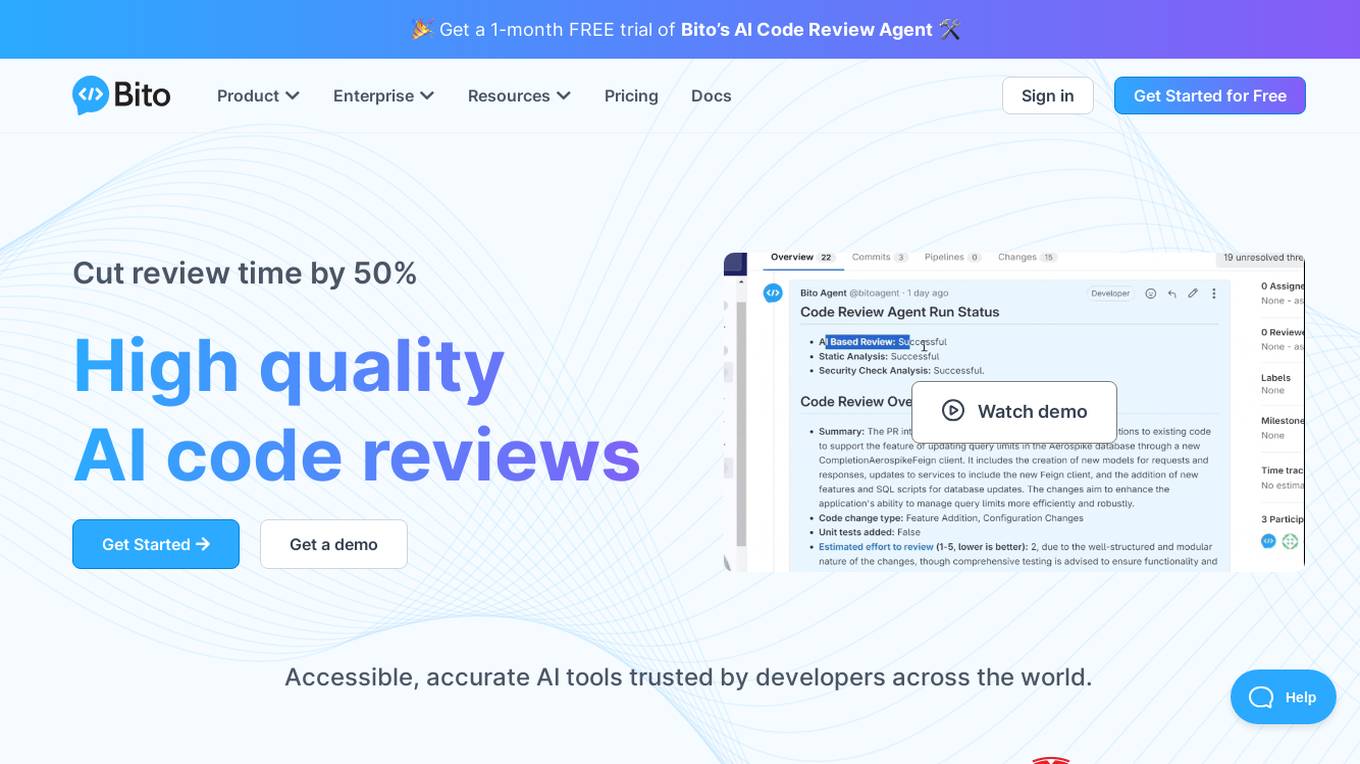
Bito AI
Bito AI is an AI-powered code review tool that helps developers write better code faster. It provides real-time feedback on code quality, security, and performance, and can also generate test cases and documentation. Bito AI is trusted by developers across the world, and has been shown to reduce review time by 50%.

403 Forbidden Analyzer
The website seems to be experiencing a 403 Forbidden error, which indicates that the server is refusing to fulfill the request. This error message is typically displayed when the server recognizes the request but is refusing to authorize it. The '403 Forbidden' error can occur due to various reasons, such as insufficient permissions, IP blocking, or misconfigured server settings. It is important to troubleshoot and resolve the underlying cause to regain access to the website.
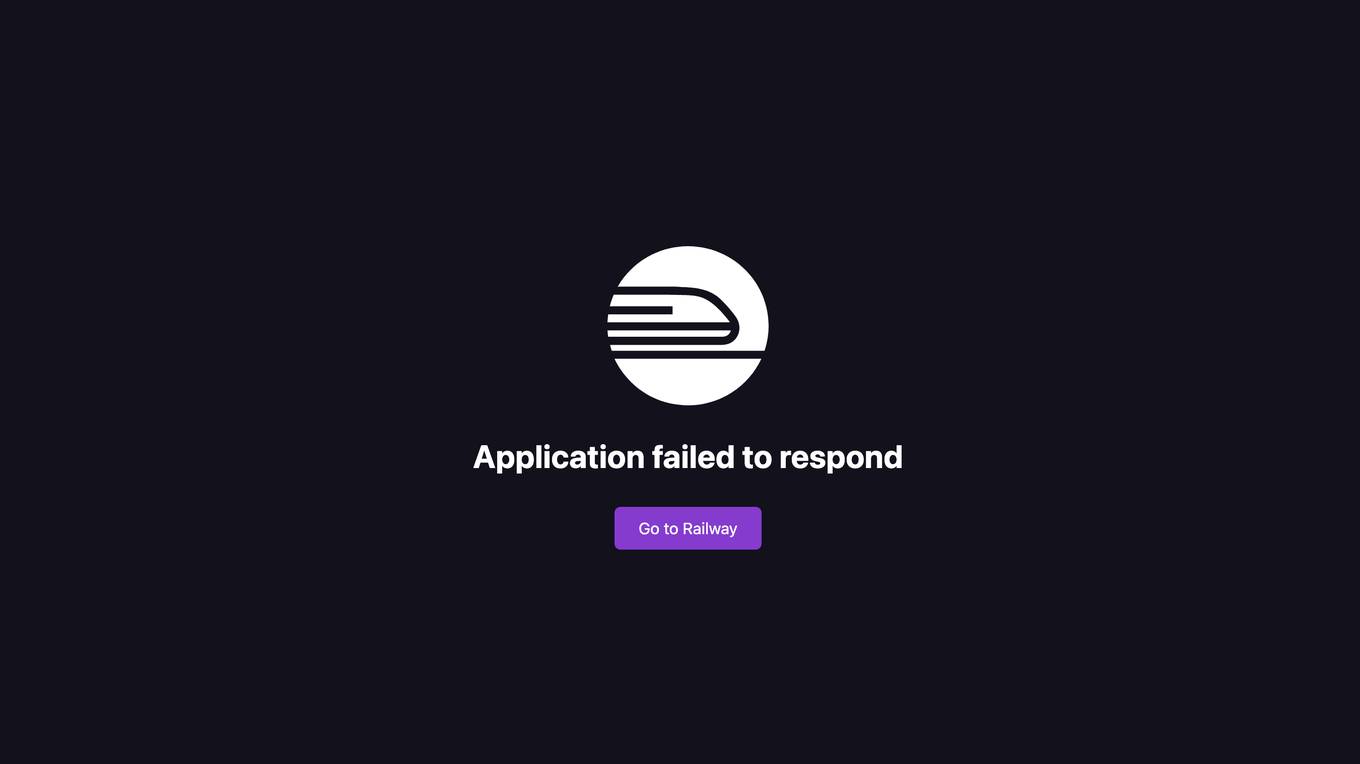
404 Not Found
The website displays a '404 Not Found' error message, indicating that the requested page is not available. It suggests checking network settings and contacting the website owner for assistance. The error message includes a unique request ID for troubleshooting purposes.
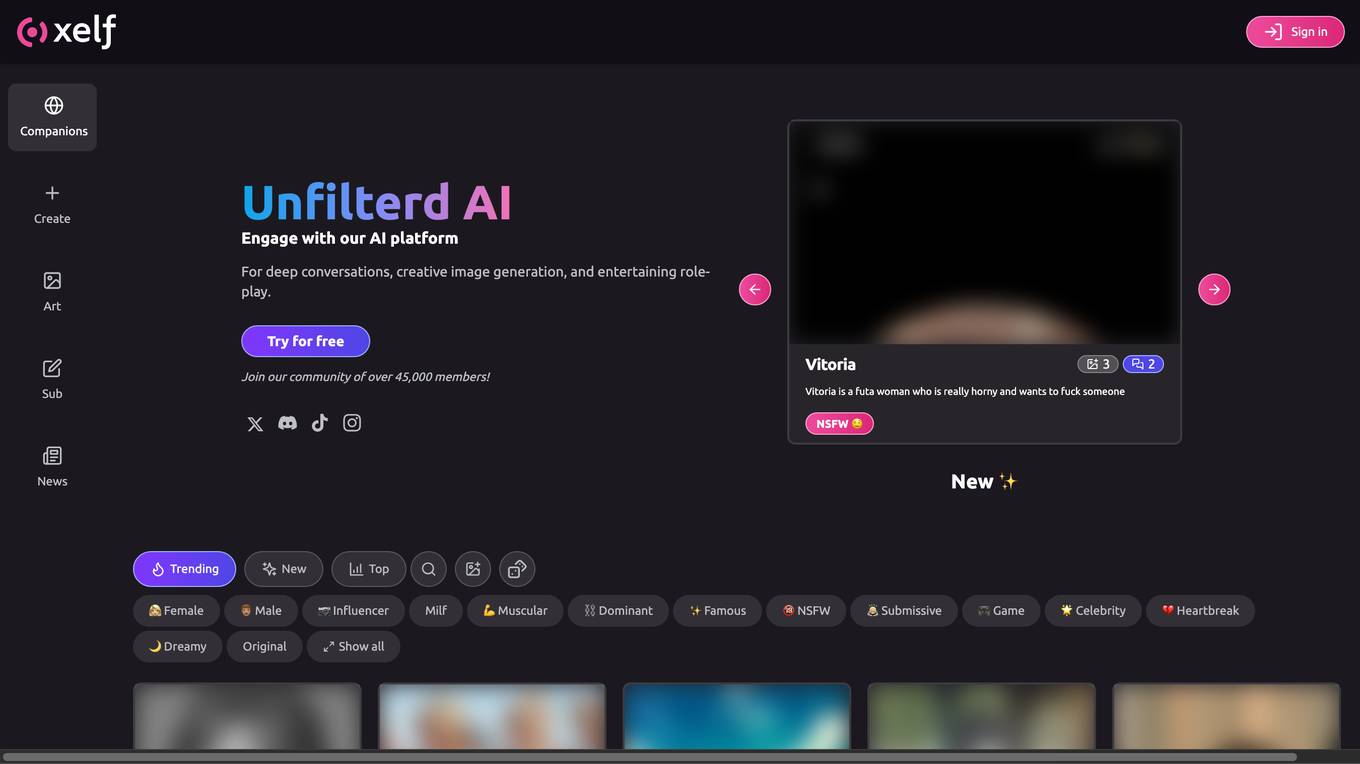
404 Error Page
The website displays a '404: NOT_FOUND' error message indicating that the deployment cannot be found. It provides a code (DEPLOYMENT_NOT_FOUND) and an ID (sin1::22md2-1720772812453-4893618e160a) for reference. Users are directed to check the documentation for further information and troubleshooting.

404 Error Notifier
The website displays a 404 error message indicating that the deployment cannot be found. It provides a code (DEPLOYMENT_NOT_FOUND) and an ID (sin1::tb2c2-1757006335226-e6bd40c1a978) for reference. Users are directed to check the documentation for further information and troubleshooting.
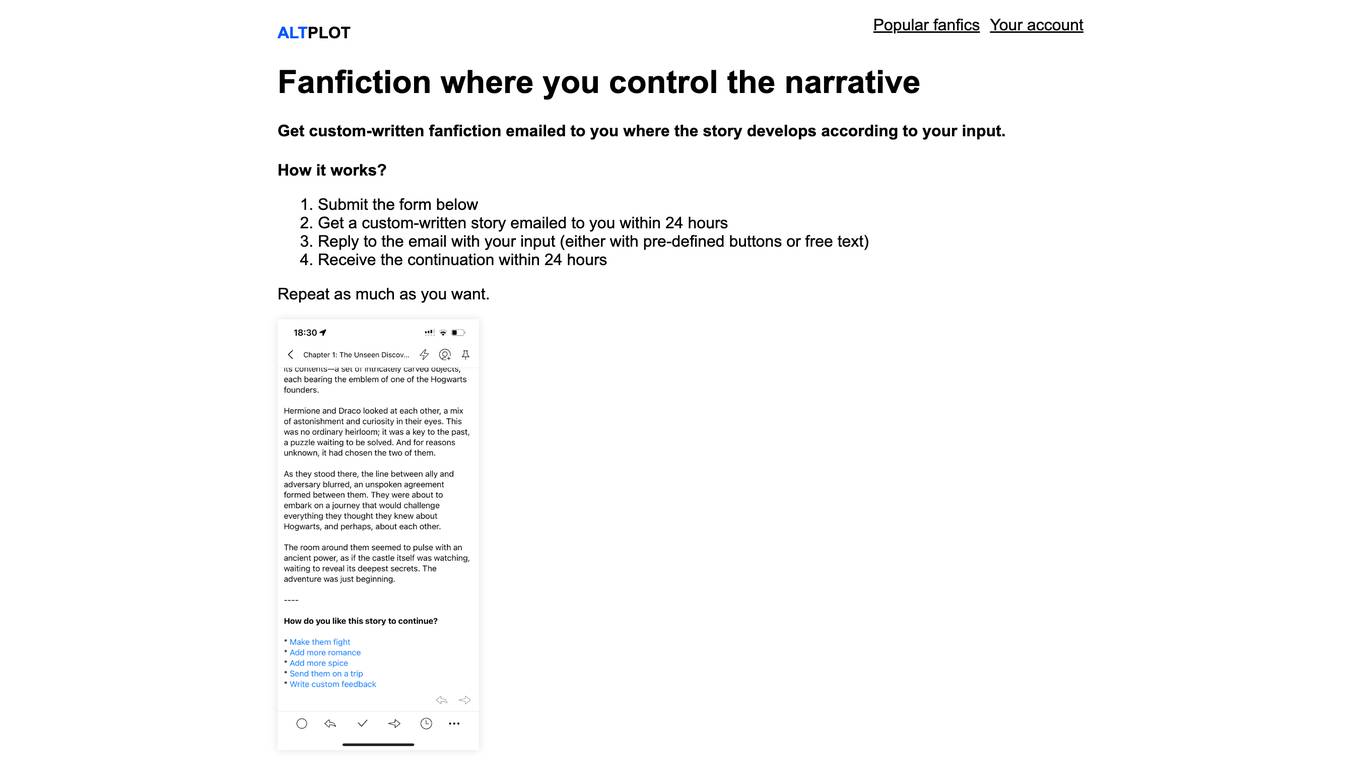
altplot.com
altplot.com is a website that currently seems to be experiencing technical difficulties, as indicated by the error message 'Web server is down Error code 521'. The site appears to be hosted on Cloudflare and is inaccessible at the moment. Users are advised to wait a few minutes and try accessing the site again. For website owners, the recommendation is to contact the hosting provider to address the issue. The error message provides a Cloudflare Ray ID for reference.
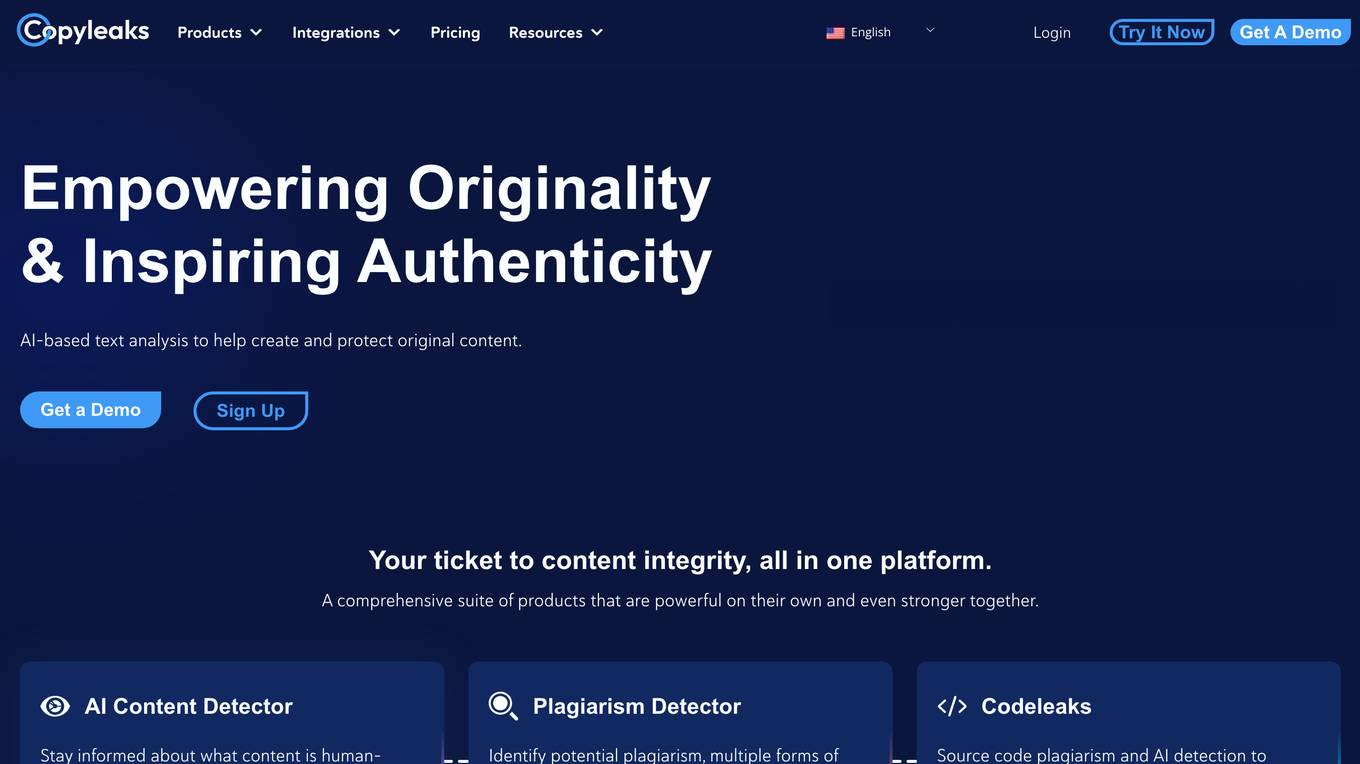
Copyleaks
Copyleaks is an AI-based plagiarism and AI content detection tool that helps users detect AI-generated code, plagiarized and modified source code, and provides essential licensing details. It offers solutions for academic integrity, governance and compliance, unauthorized large language model (LLM) usage, AI model training, and intellectual property protection. The tool includes products such as AI Detector, Plagiarism Checker, Writing Assistant, and API Integration, empowering users to ensure content integrity and transparency. Copyleaks also provides resources like news, AI testing methodologies, help center, success stories, and a blog to support users in protecting their content and adopting AI responsibly.
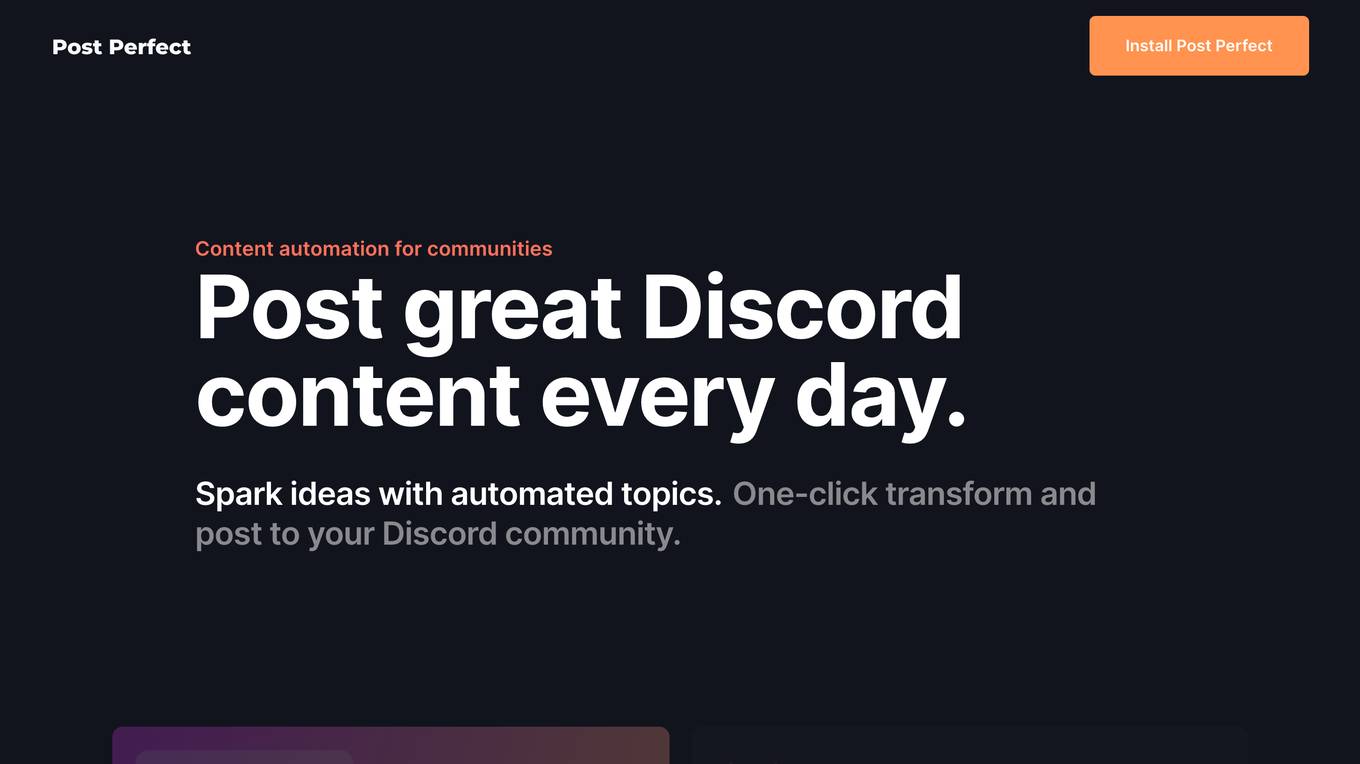
403 Forbidden
The website seems to be experiencing a 403 Forbidden error, which indicates that the server is refusing to respond to the request. This error is often caused by incorrect permissions on the server or misconfigured security settings. The message '403 Forbidden' is a standard HTTP status code that indicates the server understood the request but refuses to authorize it. It is not related to AI technology or applications.
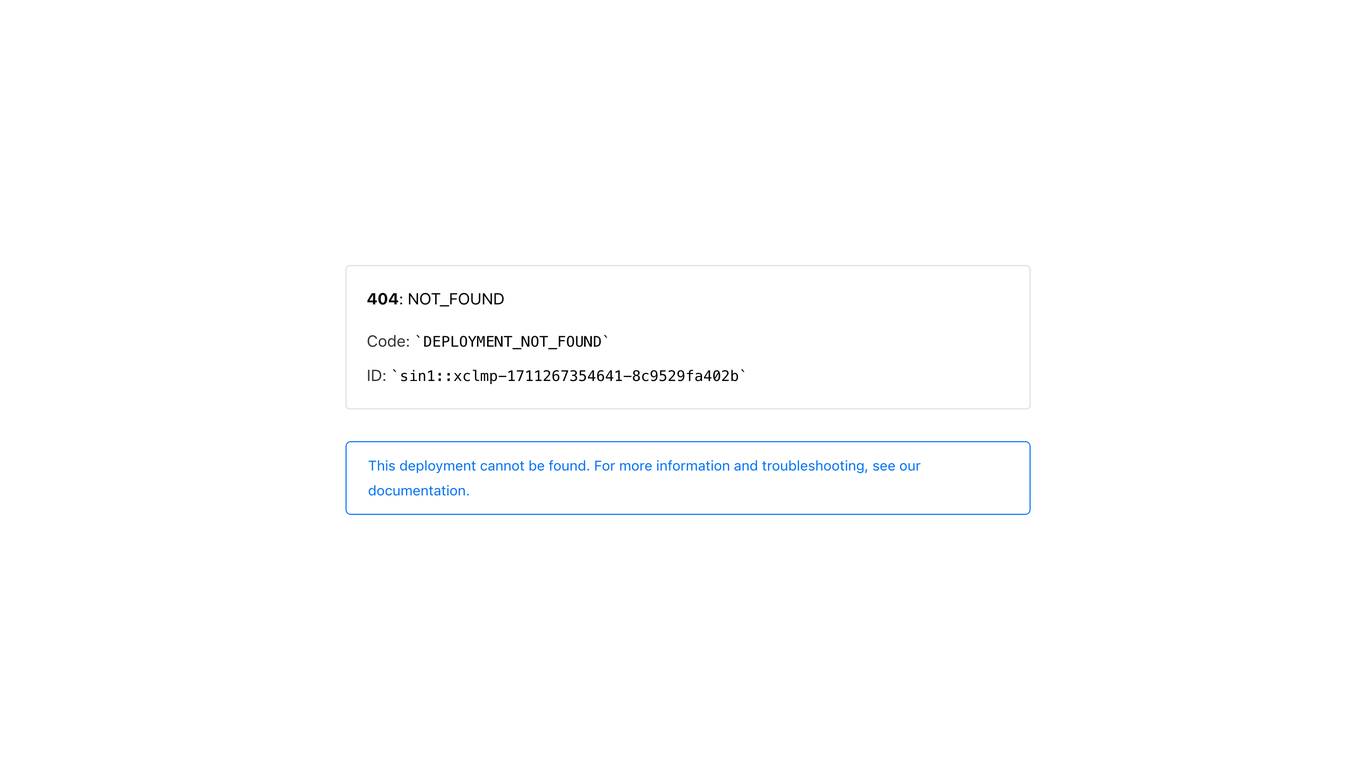
404 Error Notifier
The website displays a 404 error message indicating that the deployment cannot be found. It provides a code (DEPLOYMENT_NOT_FOUND) and an ID (sin1::9dqr4-1736268911417-fd3e8899e116) for reference. Users are directed to check the documentation for further information and troubleshooting.
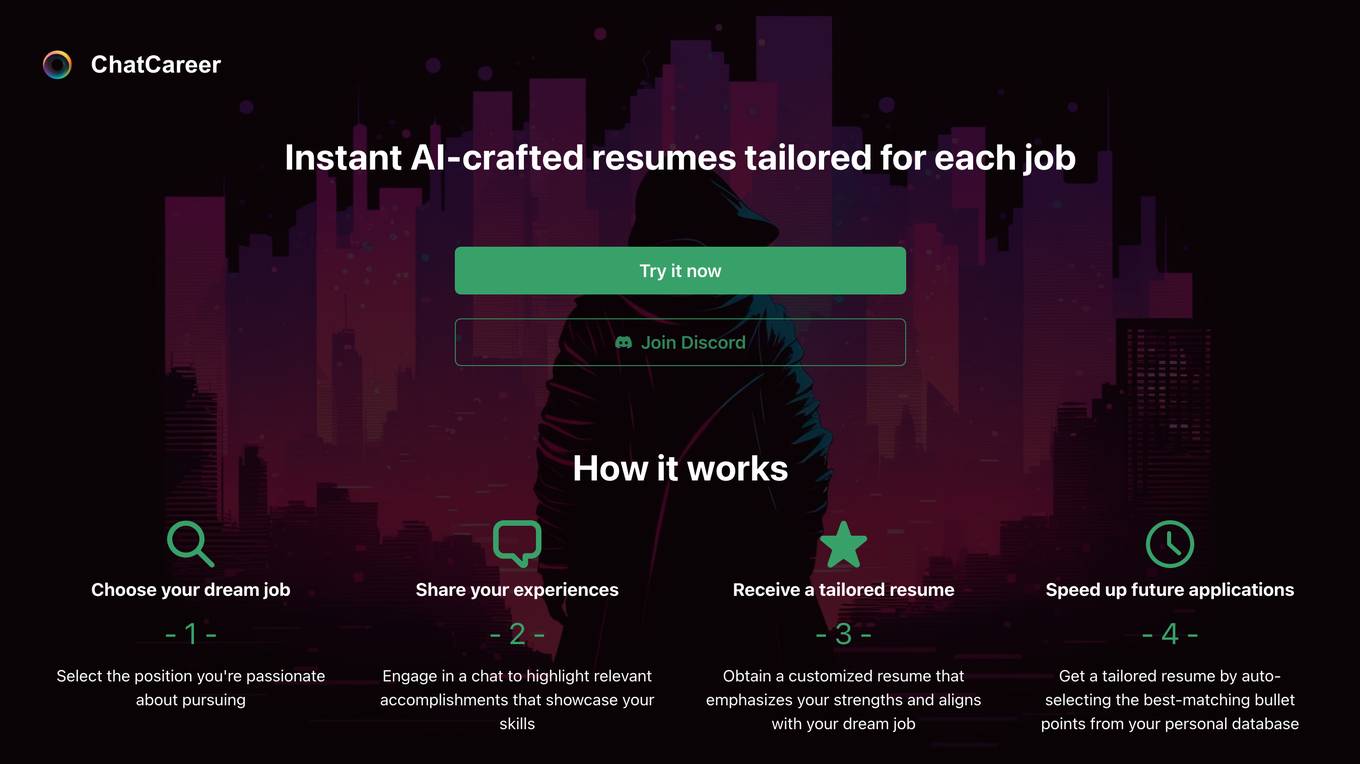
404 Error Page
The website displays a 404 error message indicating that the deployment cannot be found. It provides a code (DEPLOYMENT_NOT_FOUND) and an ID (sin1::7crbp-1720289011850-d12041b250e9) for reference. Users are directed to check the documentation for further information and troubleshooting.
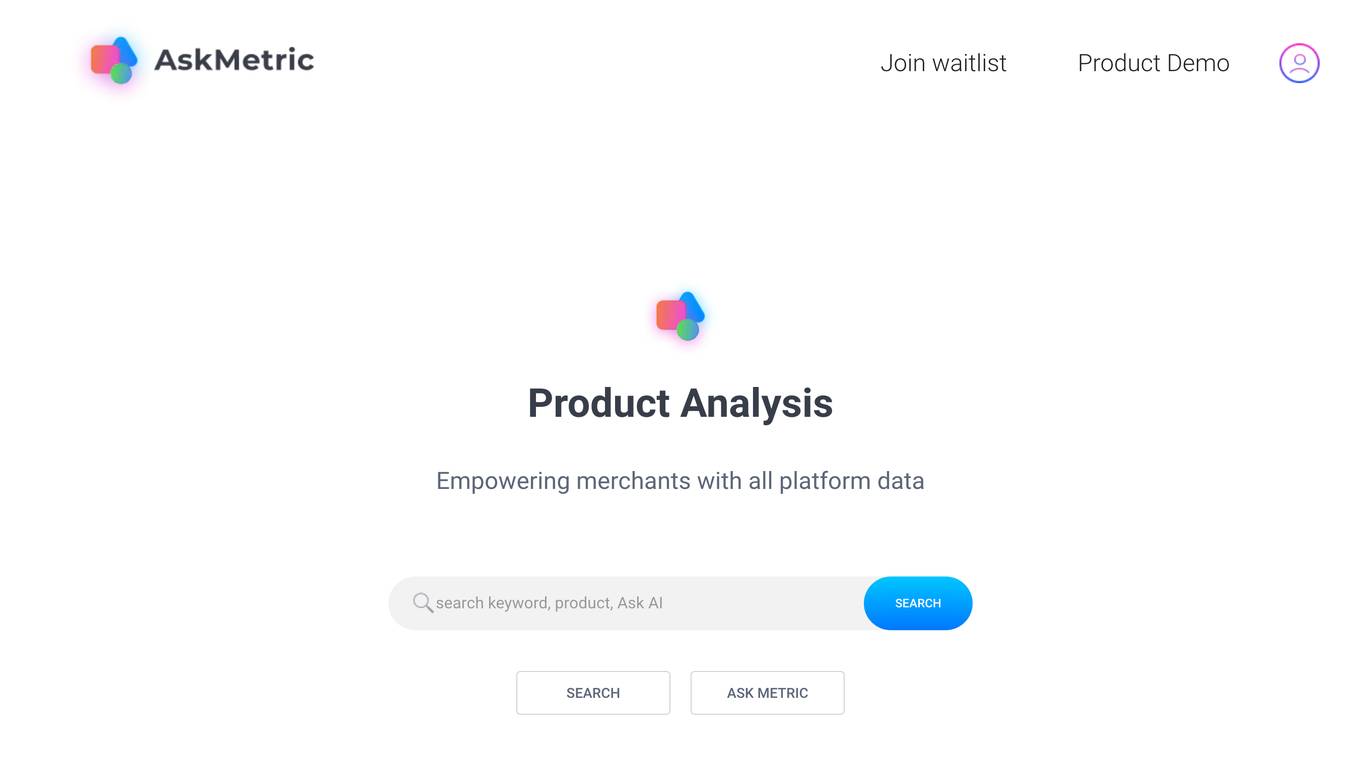
404 Error Not Found
The website displays a 404 error message indicating that the deployment cannot be found. It provides a code (DEPLOYMENT_NOT_FOUND) and an ID (sin1::k7xdt-1736614074909-2dc430118e75) for reference. Users are directed to check the documentation for further information and troubleshooting.
0 - Open Source AI Tools
20 - OpenAI Gpts
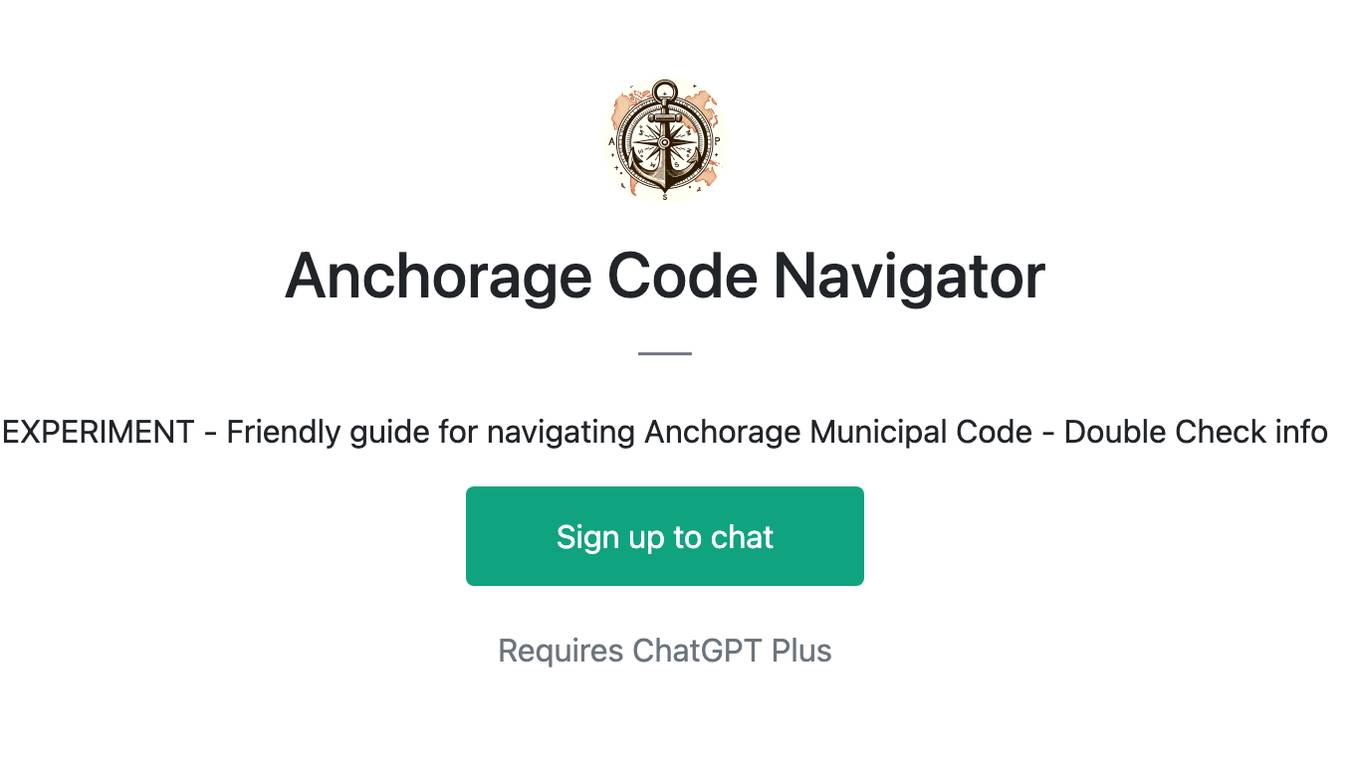
Anchorage Code Navigator
EXPERIMENT - Friendly guide for navigating Anchorage Municipal Code - Double Check info
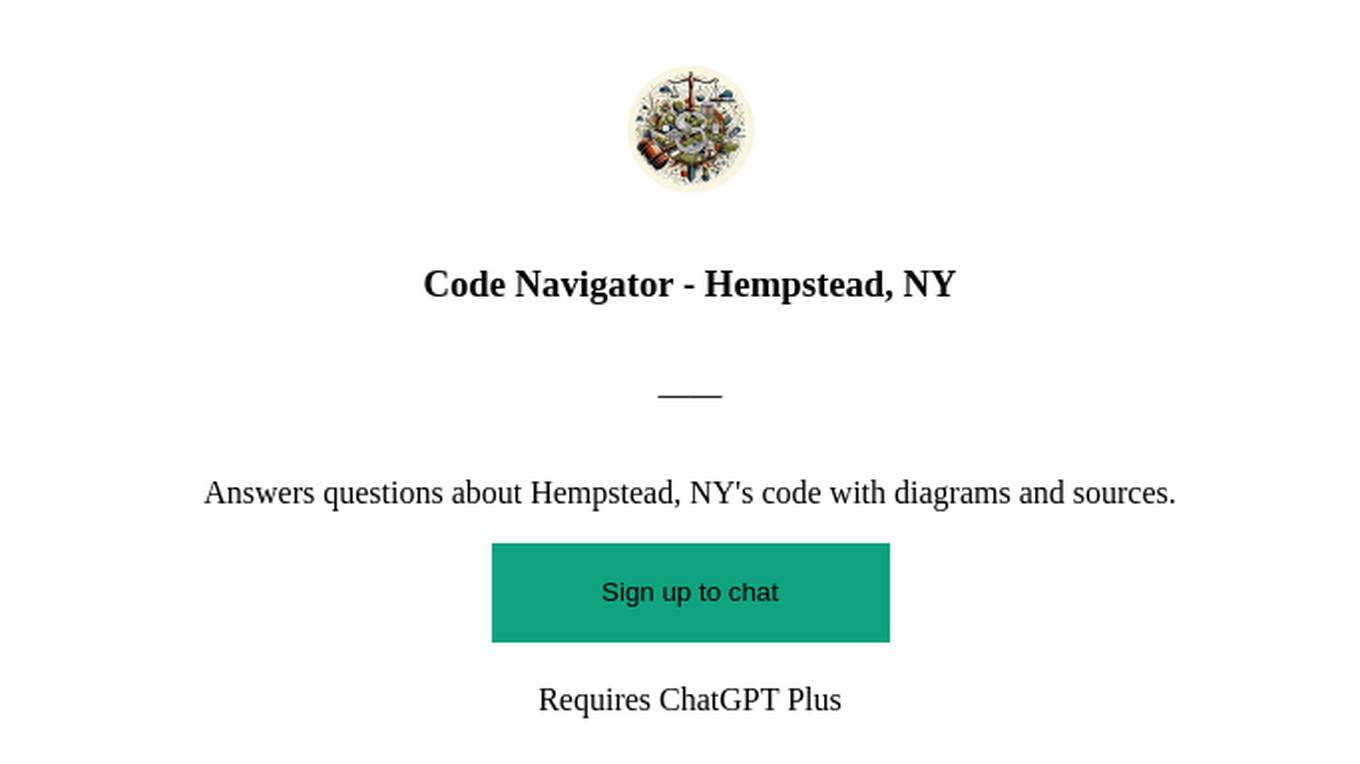
Code Navigator - Hempstead, NY
Answers questions about Hempstead, NY's code with diagrams and sources.

Orthographe Pro
Un outil de correction d'orthographe et de grammaire en langue française, outil de traduction, soulignant les erreurs et gérant le code HTML.
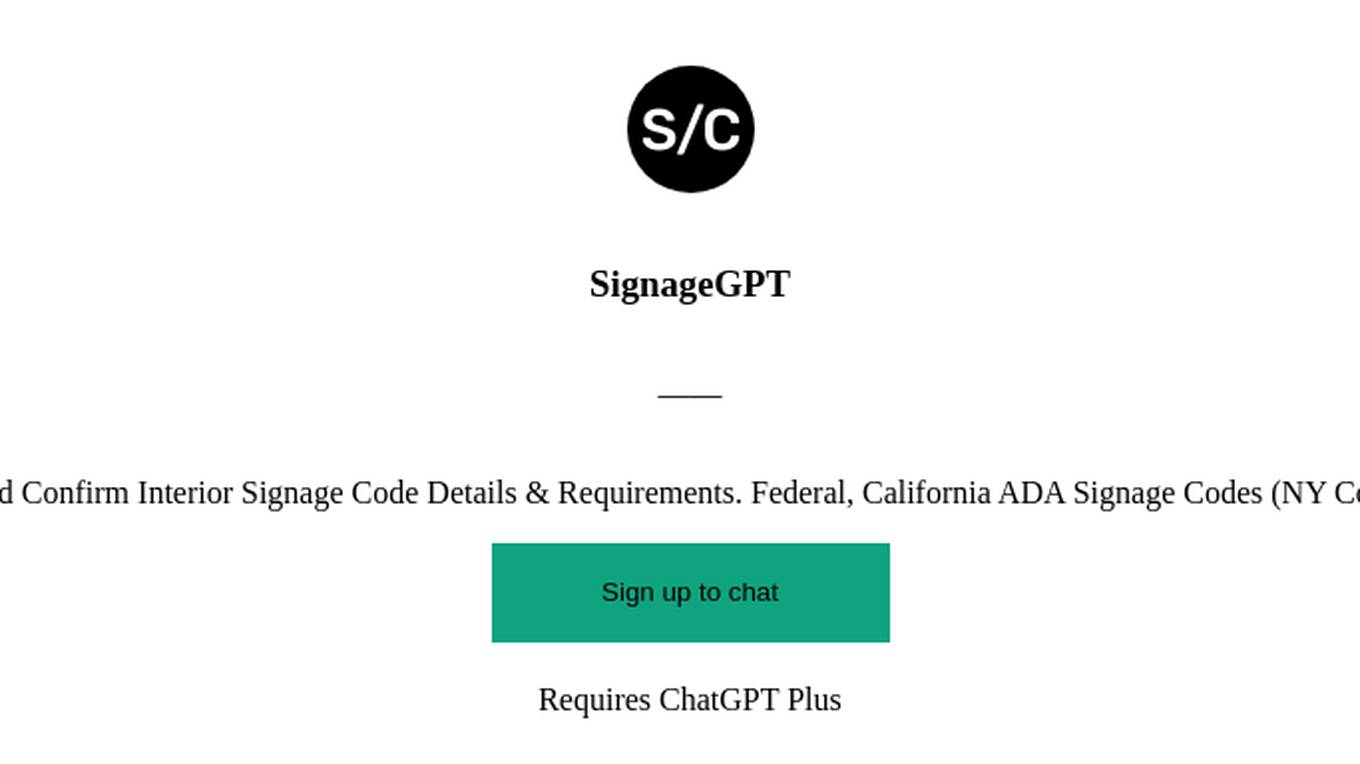
SignageGPT
Identify and Confirm Interior Signage Code Details & Requirements. Federal, California ADA Signage Codes (NY Coming Soon)
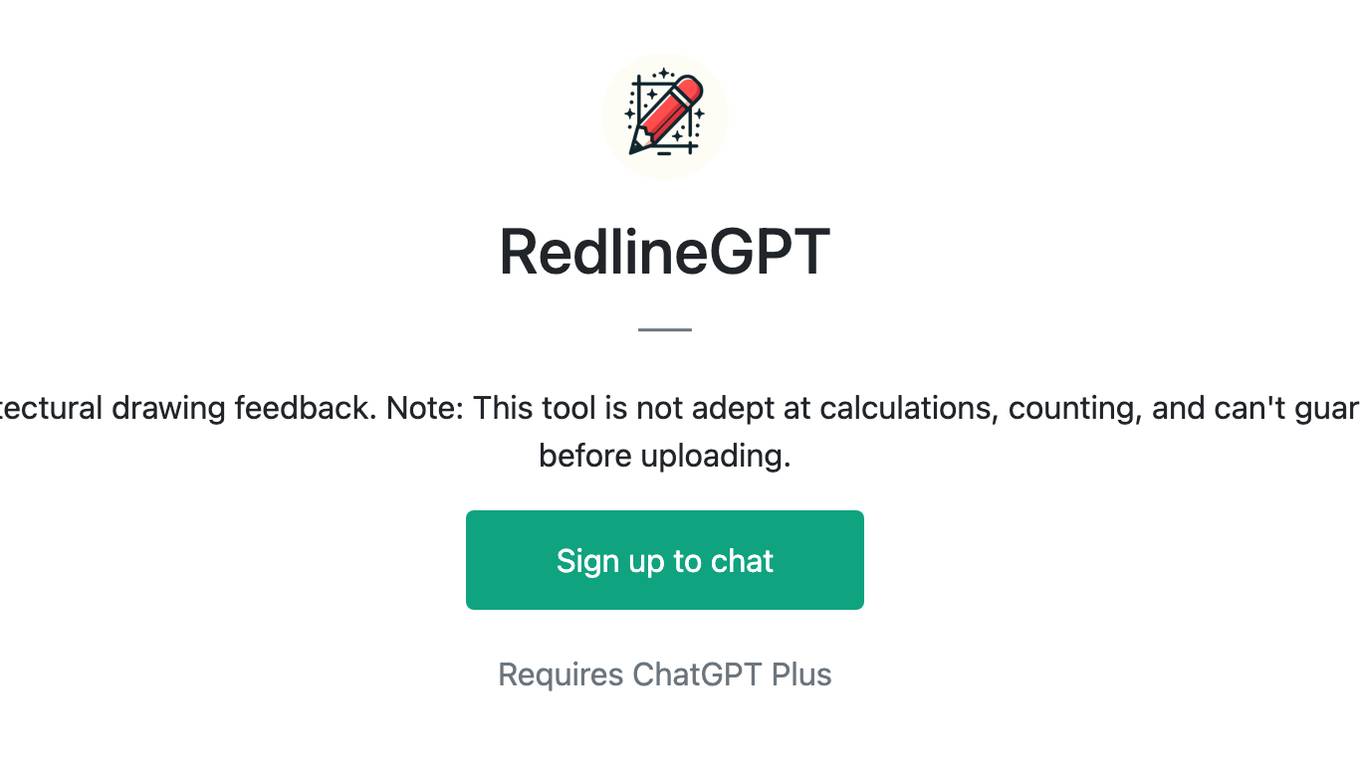
RedlineGPT
Upload a jpg/png (<5MB, <2000px) for architectural drawing feedback. Note: This tool is not adept at calculations, counting, and can't guarantee code compliance. Consider IP issues before uploading.
